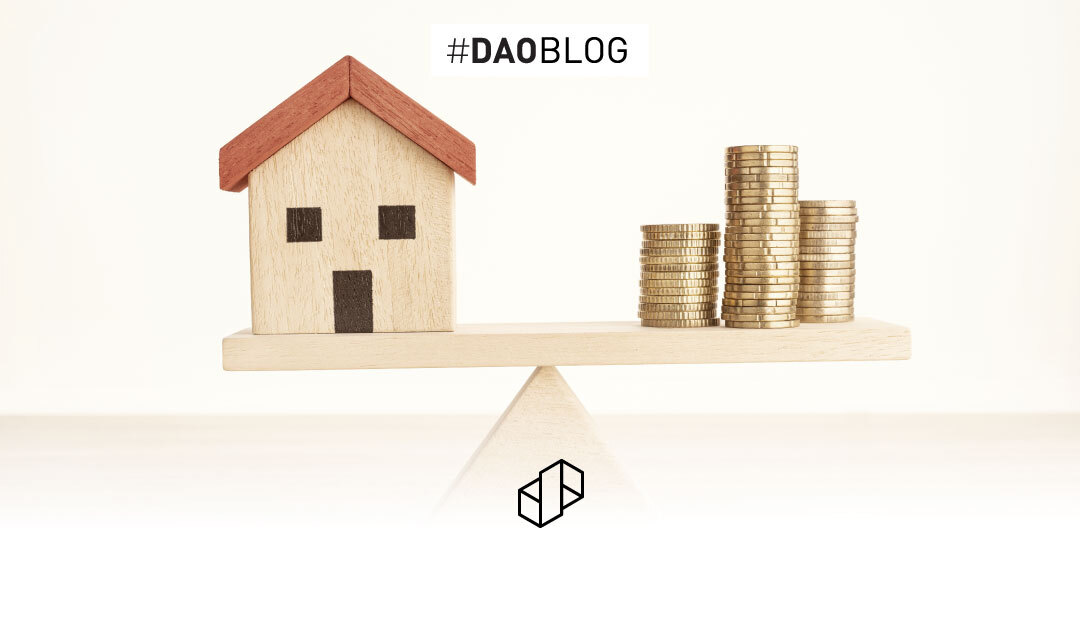
The Smart Way to Save Money: Buy Assets that Appreciate in Value
Are you tired of seeing your savings dwindle in the form of inflation and devaluation? Are you looking for a way to protect your hard-earned money and even grow it over time? If so, then you need to take charge of your financial future and focus on tangible assets.
Saving money may seem like a prudent and responsible thing to do, especially if you are just starting to save for your future. However, saving in money is actually a losing strategy that can jeopardize your financial goals and well-being. Why? Because money is not a tangible asset that can retain its value over time. In fact, money is constantly losing its value due to factors such as inflation, currency devaluation, economic instability, and political uncertainty.
The case against cash
Inflation. It is the general increase in the prices of goods and services over time, which reduces the purchasing power of money. For example, if the inflation rate is 10% per year, then a product that costs Rs. 100 today will cost Rs. 110 next year, Rs. 121 the year after that, and so on. This means that your money will buy less and less as time goes by, unless you earn more interest than the inflation rate.
Currency devaluation. The loss of value of one currency relative to another affects the exchange rate and international trade. For example, if the Pakistani rupee depreciates against the US dollar, then it will take more rupees to buy the same amount of dollars, which makes imports more expensive and reduces the purchasing power of money. Since we are an import-oriented economy, devaluation results in higher prices across the spectrum for everything.
Economic instability. The unpredictability and volatility of the economic conditions affects the growth, employment, income and consumption levels. For example, if there is a recession, a war, a natural disaster or a pandemic, the economic activity will slow down or contract, which will reduce the income and spending of people and businesses, which in turn lowers the demand and value of money.
Political uncertainty. The lack of clarity and confidence in the policies and actions of the government affects the business environment, investor sentiment and consumer confidence. For example, if there is a political crisis, scandals, social unrest or regime changes undermine the political stability and credibility, which creates doubts and fears about the future direction of the country. This lowers people’s trust in the country’s currency, giving rise to inflation.
The case for tangible assets
On the other hand, tangible assets are assets that have physical value, such as real estate, gold, and art. They are usually inflation-proof and, if chosen smartly, can often appreciate over time. This makes them a much better investment than cash, which is constantly losing value. There are several benefits to savings in tangible assets, some of them are explained below.
Tangible assets are not subject to inflation. Inflation is the rate at which the prices of goods and services increase over time. This means that your savings will lose value if you keep them in cash. Tangible assets, especially those with limited supply like real estate and rare collectibles, can act as a hedge against inflation. As the cost of goods and services rises over time, tangible assets tend to appreciate, preserving your purchasing power and maintaining the real value of your savings.
Tangible assets are a great means of wealth preservation. Tangible assets, such as real estate and gold, have a history of preserving wealth over time, acting as a safeguard against economic uncertainties.
Tangible assets minimize risk via portfolio diversification. Investing in tangible assets allows for portfolio diversification, reducing overall investment risk. By spreading your savings across different asset classes, such as real estate, gold, and other tangible assets, you can mitigate the impact of market volatility and potentially enhance returns.
Tangible assets can generate income. Many tangible assets have the potential to generate income. Real estate, for instance, can provide rental income, while certain tangible assets like dividend-paying stocks or investment properties can yield regular cash flow. This income stream can supplement your savings, cover expenses, or be reinvested for further growth.
Tangible assets can provide utility. Unlike cash, which may sit idle in a bank account, tangible assets can offer additional benefits beyond financial returns. Real estate can provide a home to live in or be used for vacations and rentals. Precious metals like gold can be worn as jewelry or used for industrial purposes. These tangible assets offer both financial value and tangible enjoyment.
What tangible assets are good for saving money?
There are many different tangible assets that you can invest in. Here are a few examples:
Real estate. Real estate is one of the most popular tangible assets to invest in. This is because real estate is in limited supply, and a good investment in real estate beats inflation and devaluation giving you greater returns. It can also generate passive income through rent payments..
Gold. Gold is another popular tangible asset to invest in. This is because gold is a precious metal that has held its value for centuries. Before the current Fiat economic system, it used to be the standard against which wealth was measured. However, gold needs to be protected from physical theft which demands higher levels of security.
Art. Art is a more illiquid asset than real estate or gold, but it can still be a good investment. This is because art can appreciate in value over time. It can also be a good way to diversify your investment portfolio. It is, however, prone to weather conditions, fakes, and theft. Unless you already have generational wealth and are looking to just diversify your portfolio, it is usually discouraged as an investment.
To sum it all up
Saving in cash may feel secure, but it often leads to lost opportunities for wealth accumulation. Money is not an asset that can grow or generate income for you. Money is just a medium of exchange that can lose its value at any time due to factors beyond your control.
Instead, focus on tangible assets like gold and real estate to secure your financial success. In Pakistan’s dynamic real estate market, proptech 3.0 is opening doors to exciting investment opportunities. DAO PropTech utilizes the power of data and blockchain to enable people from all walks of life to start investing in real estate. It lowers the barrier to entry and enhances the liquidity options for real estate. By diversifying your portfolio and harnessing the power of real estate, you can experience long-term appreciation, generate passive income, and achieve your financial goals. So, don’t let your money lose value—grab a tangible asset and pave the way to financial prosperity!

Burhan ul Haq
Senior Manager Performance Marketing

 Book a Meeting
Book a Meeting